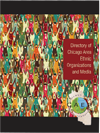-
Titus and me
By Natalie Pardo

“Youʼre not from Chicago, are you?” If Iʼd collected a dollar every time I was asked that question, Iʼd be a rich Haitian American by now.
Born on American soil in 1963 and a resident of Chicago since 1966, I am happy to report that the assimilation process is still not complete. And my tongue desperately hangs on to an ever-fading French accent.
Although my speech pattern is changing and “Midwesternizing,” my appetite sure hasnʼt met that monochromatic fate. My grandmother Titusʼ cooking keeps my senses in touch with Haiti. Her kitchen is one of my favorite places in the world. To me, Titus is Haiti.
First of all, her apartment is always hot, hovering at about 85 degrees. And when all four burners are on, the temperature can hit a balmy 90 degrees. Perfect Haitian weather. Then, all the delicious smells of her village, Jeremie, fill the air. Thereʼs chicken cooking in an unforgettable sauce of onion, green pepper, garlic and a secret ingredient. On the second burner, a pot of red beans and rice slowly simmers. A third pot holds my sisterʼs favorite dish: lambis. The last pot is violently boiling sweet banane.
Titusʼ pantry is a treasure of Haitian delicacies and mysteries, like chicken paté, bonbon amidon, comparette, akacant, and her special pimente.
Most of the time, I feel like that hyphen in Haitian-American. I am a black woman caught between two worlds: Haiti and the United States. One world I live in every day, and the other I wish I could call home. But that hyphen disappears when I sit at Titusʼ table, loaded with herbs and light-blue envelopes holding news from the West Indian island.
We communicate with each other in a special way. Titus, who came to Chicago in 1966 when my parents got married, still speaks Creole and enough English to pay bills and take the bus. She speaks to me in Creole and I respond in English. Mind you, I understand Creole, but itʼs difficult for me to put the words in the right order.
Feeling my Haitian-ness fading, I decided to take a Basic Creole class at Kennedy-King College. And my study partner is Titus. This class has created a new bond between us. Titus beams with pride as I struggle to speak in Creole. We have a great time teaching each other. You see, Creole just recently became a written language. So Titus is learning to read it, in a Creole Bible I bought her for Christmas, while Iʼm learning to speak it. Being with Titus is like being a child again. Iʼm rediscovering my proud and colorful heritage through her. Now in my 30s, I realize how I took my culture for granted as I was growing up on the South Side and trying to be like the other girls, whose families were from Mississippi and Tennessee. No one in my second-grade class had ever heard of Haiti.
I rarely invited friends over for dinner. A meal at my house was not like dining with the Brady Bunch. Alice, their maid, never served griot (spicy fried pork) with black rice and shrimp. I didnʼt think my classmates would understand having rice at every meal.
I remember the surprise on one friendʼs face when she arrived at my house. We had just received our first communion and my family was celebrating this important religious event. Baptisms and first communions are major social events in Haiti. At my party, at least 100 people were dancing, eating and drinking into the wee hours of the morning. Her parents couldnʼt believe all the fanfare over a kidʼs event, but they stayed and had a great time with the church-going partiers.
I knew then that I lived a different Black life. I played soccer instead of basketball. I wore big, colorful ribbons instead of barrettes. The first and last time I had grits was in college. I didnʼt have other kinds of soul food, like greens and black-eyed peas, until 1986.
Iʼve always tried to become more American in a “sweet potato pie” kind of way. But I just couldnʼt cut it. So I always felt like a stranger, a visitor.
I didnʼt have that sense of home until 1979, when I landed on Haitian soil. The first thing I saw was an old man riding a mule on a dusty road. For the first time in my life, I felt like I belonged and I was home.
I looked Haitian, I walked Haitian, I smiled Haitian. I felt like I fit. Everything was fine until I opened my mouth to speak. My tongue betrayed me. I was again a stranger, a visitor. But Haitiʼs spirit wonʼt let me go.
When Iʼm in Miami, Iʼm seen as a Haitian women. Donʼt ask me to explain it. I was standing in the airport when a woman frantically spoke to me in Creole. She was looking for the rest of “our” group. But I didnʼt know her. I responded in French. She apologized and kept searching. That was just a coincidence, I thought. But the next day, as I was walking down the street with my goddaughter, two men told us to stop trying to hide our Haitian-ness and to speak in Creole. In Miami there are a lot of Haitians, but there also are Jamaicans and African Americans. Maybe it was a lucky guess.
Chicago has a relatively small Haitian population, compared with New York and Miami. But people in the diaspora seem to have a sixth sense for picking Haitians out of a crowd. At this yearʼs Taste of Chicago, I was walking through the crowd eating some curried chicken with rice and beans when a man said to me in Creole, “Are you going to eat all of that?” To which I responded in my basic crude Creole, “Iʼm going to eat the whole thing.” Out of all the people at the Taste, what did he see in me that was so Haitian? He disappeared into the massive crowd before I could ask him.
I revisited Haiti in 1991. That island still has a hold on me. Some of my friends describe me as a militant. I take it as a compliment. I believe one of my ancestors was responsible for kicking out the French back in the early 1800s. That victory is a great source of pride for me. If black slaves can free themselves, then I can do anything I put my mind to. Iʼve never been afraid of the “white man,” because my people kicked his butt. This knowledge helped me understand that no one can keep you down, no matter the situation.
Haiti is billed as the poorest country in the Western Hemisphere, but that isnʼt a source of embarrassment for me. In Haiti, I saw the richest people in the world, because they had each other. Haitians are rich with pride, compassion, love and family loyalty. Their work ethic is commendable and inspires me to overcome my daily obstacles.
If it werenʼt for the lessons I have learned from Titus, who emphasized education, hard work and compassion, I would not be living the American dream — hyphen and all.
Natalie Pardo is a reporter at The Chicago Reporter.
Return to Links & Features
Available Now!
The
Chicago Area Ethnic
HandbookEasy-to-use chapters on the histories and traditions of
37 ethnic groups.
Second Edition
UPDATED and EXPANDED!

The Directory
of Chicago Area Ethnic Organizations
and Media Who they are, what they do and how to reach them.
Third Edition



